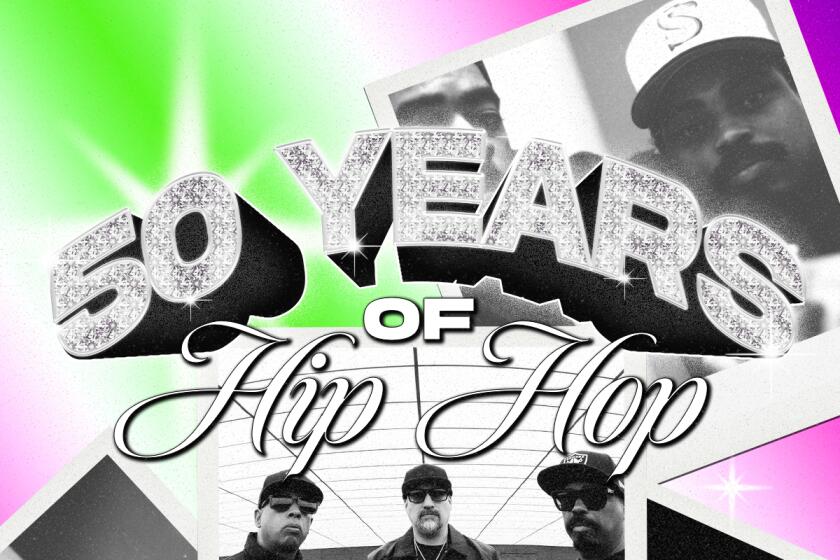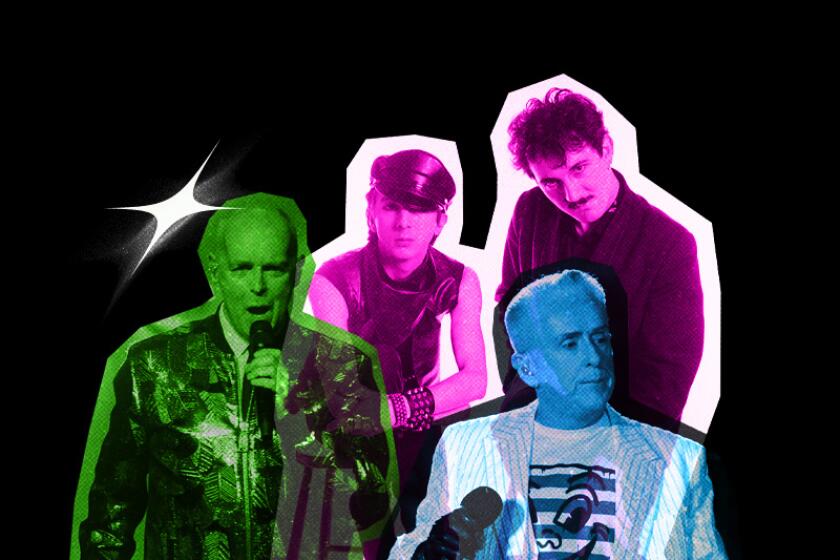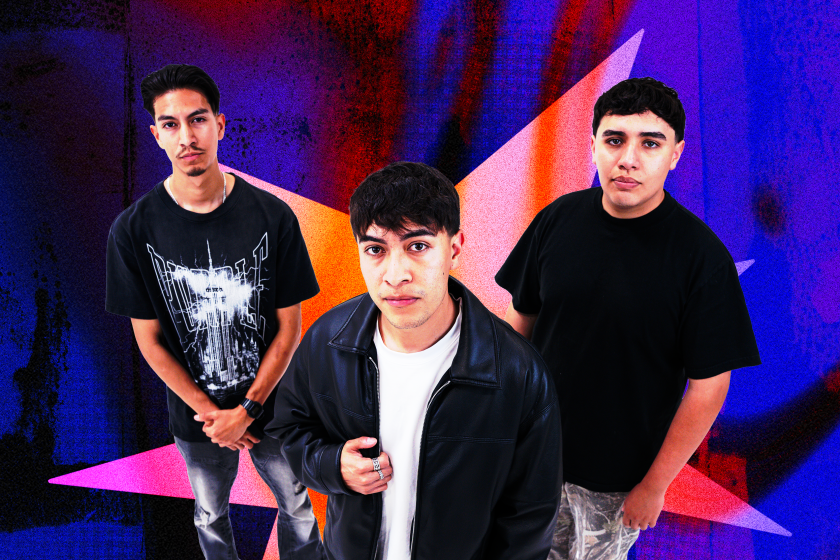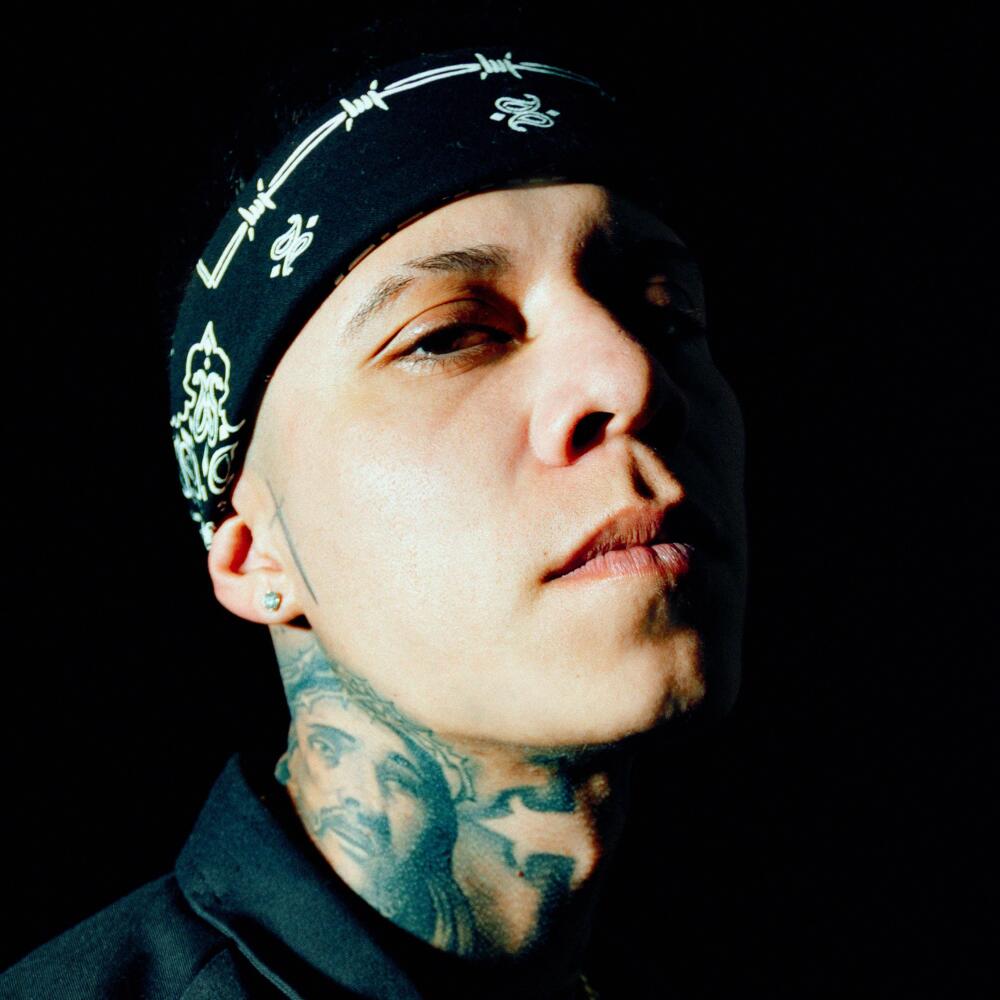
- Share via
This time Santa Fe Klan came prepared. During his first U.S. tour, only a year ago, he was accompanied on stage by a DJ, but this time his performances will include something much more involved.
He made that crystal clear during his show at the Honda Center in Anaheim on Aug. 4. As he prepares for his show Friday night at the Peacock Theater at L.A. Live, the leading voice in Mexican hip-hop will bring along a complete band, with two backup singers and a team of break dancers.

Additionally, during the several cumbias in his show, the young rapper also played the accordion, including mixing in some classics from Celso Piña and even a cover of “La Chona” from Los Tucanes de Tijuana.
The 22-year-old performer, whose real name is Angel Jair Quezada Jasso, has proved to be much more than just a rapper.
His skills are clearly heard on his new album “Todo,” which was released last week and which gives a tour of multiple musical genres, including hip-hop, cumbia, balada, bachata, reggaeton and banda, making it the most ambitious project of his young career.
Latinx Files: Remembering our contributions to hip-hop, 50 years later
“I’ve done some albums that were exclusively cumbia, or exclusively hip-hop but I decided to bring it all together in one album,” said the singer during a Zoom interview with Los Angeles Times en Español. “And this is just an example of the work I’ve done as I have whole albums recorded of just rap, just regional and just cumbias, but I can release everything at the same time.”
Every artist can try to record an album that navigates between different styles, but that doesn’t mean that it will work cohesively. That doesn’t happen here with Santa Fe Klan, who jumps impressively from one genre to another.
As opposed to some other acts that are defined as alternative, this Mexican performer doesn’t combine different styles in one song, as he lets every piece take its own path.
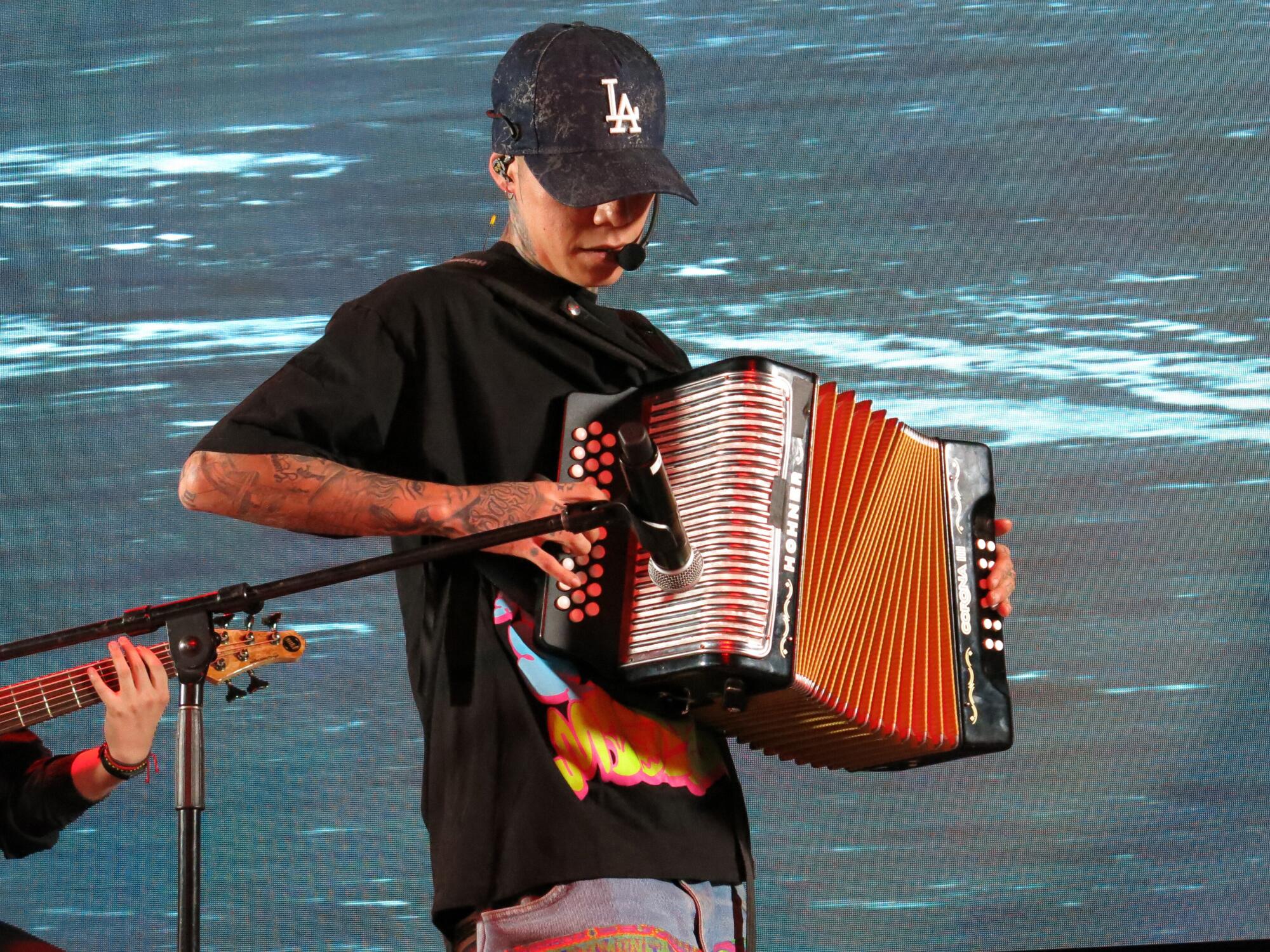
“I don’t do it all, the rap is all mine, but I bring together people that know about other things,” said Santa Fe. For example, some of the reggaeton beats came from Dimelo Flow, a Panamanian DJ who has worked with J Balvin, Ozuna and Nicky Jam, while the regional Mexican songs came with an assistant from Julian Villarreal “El Moko.”
Santa Fe has also evolved not just as a rapper, but as a singer. When he recorded his first songs at 13, his voice had not developed yet. Now he shows an undeniable versatility. And his international reach has also expanded thanks to his collaborations with acts like Los Angeles Azules and the acclaimed Argentine rapper Cazzu. That collaboration on the “Tu y Tu” has been streamed 11 million times on YouTube.
“My voice has improved because of the work I have put in, to learn from my movements and to fix the errors,” said Santa Fe. “I feel like I still have a lot to learn, in fact I have a list of things I need to improve. But I have never had any musical training. Everything is natural, and I like it that way.”
In the year since its publication, ‘A Kiss across the Ocean: Transatlantic Intimacies of British Post-Punk and US Latinidad’ has connected author Richard T. Rodríguez with fellow admirers of the genre.
He was born and raised in Santa Fe, a neighborhood of Guanajuato that has served as an inspiration beyond just giving him his stage name. At 16, he moved to Guadalajara, where he still lives. But that doesn’t mean he has broken his attachment to his hometown.
“It is where I am from and it is where I have invested in a clothing store, a barber shop, a recording studio and a tattoo parlor,” said Santa Fe. “The truth is I am always between Guanajuato and Guadalajara.”
He doesn’t avoid the darker side of the streets he grew up in. During his show at the Honda Center he gave shout-outs to the gang members in the audience and his incursion into the world of Mexican regional music has included lyrics celebrating drug traffickers. The use of marijuana is a constant theme in his music.
“I am on the side of those that make the music and not the business people,” said Santa Fe. “I am not interested in selling something that isn’t about me. I’ve been offered marijuana in exchange for performing, but I’ve never accepted. I just know some people, and for me it is better to have friends that pay me money for performing. I respect people and their work, but we do not get involved in things that aren’t our business.”
More to Read
The Latinx experience chronicled
Get the Latinx Files newsletter for stories that capture the multitudes within our communities.
You may occasionally receive promotional content from the Los Angeles Times.

